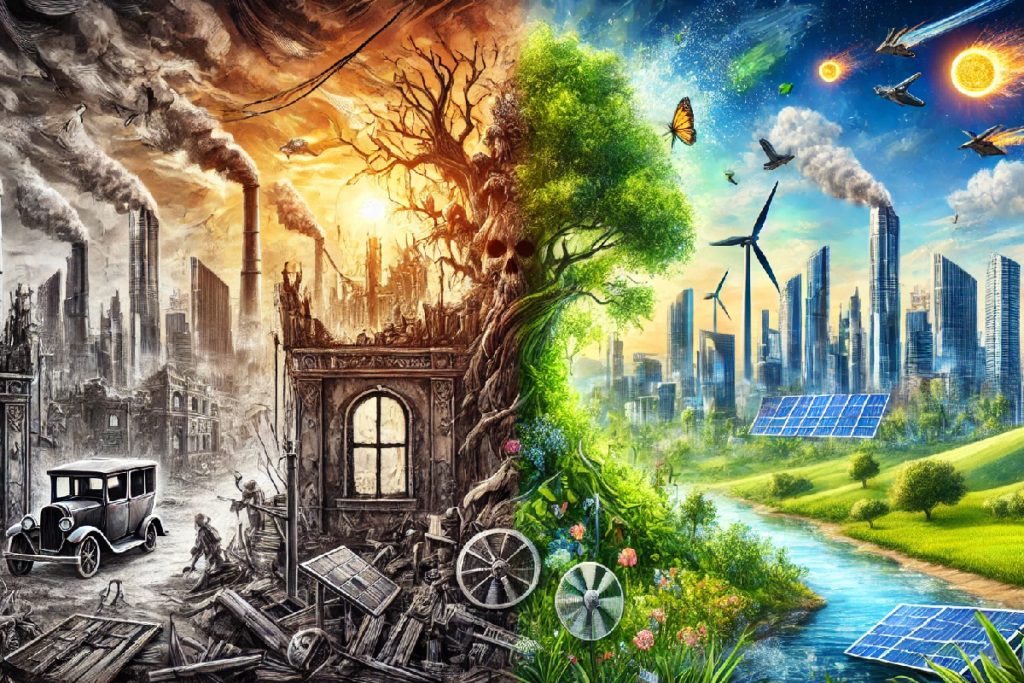The world is in the midst of a significant transformation, where old systems, ideologies, and structures are slowly dying, giving way to new and emerging alternatives. This transition, marked by uncertainty and struggle, reflects the complex process of birth and death that societies undergo during times of major change. As the familiar fades, new ideas and movements are struggling to establish themselves, shaping a future that remains uncertain yet full of potential.
The Decline of the Old Order
Across the globe, traditional power structures—whether political, economic, or social—are facing unprecedented challenges. From the rise of populist movements and the questioning of democratic institutions to economic systems struggling under the weight of inequality, the old ways are increasingly seen as unsustainable. In many countries, citizens are disillusioned with conventional governance, leading to a surge in protests, political upheaval, and demands for change.
Economic models that once fueled prosperity are now criticized for widening inequality and environmental degradation. The capitalist system, which dominated the 20th century, faces criticism for prioritizing profits over people and the planet. This discontent has given rise to calls for more equitable and sustainable alternatives, such as the circular economy, universal basic income, and progressive taxation.
The Emergence of New Movements
In the vacuum left by crumbling systems, new movements are struggling to gain a foothold. These emerging forces are characterized by their innovative approaches to social, economic, and environmental challenges. Movements advocating for climate action, social justice, and technological innovation are at the forefront of this new wave, pushing for policies that prioritize sustainability, inclusivity, and ethical governance.
The Future of Artificial Intelligence: What Lies Ahead?
The rise of digital currencies, blockchain technology, and decentralized platforms signals a shift away from traditional financial systems. These technologies promise to democratize access to financial services, reduce the power of centralized institutions, and create new opportunities for economic participation. However, their path to mainstream acceptance is fraught with regulatory hurdles, skepticism, and the challenges of integrating into existing systems.
Challenges of Transition
The transition from old to new is rarely smooth. The emerging movements and ideas often face fierce resistance from established powers vested in maintaining the status quo. Political polarization, misinformation, and economic instability further complicate this shift, making it difficult for new systems to gain traction.
One of the most pressing challenges is the need for global cooperation to address issues that transcend national borders, such as climate change, pandemics, and economic inequality. While new alliances and networks are forming to tackle these challenges, the lack of coordinated action often hampers progress, leaving the new struggling to be born.
A Glimpse of the Future
As the old order continues to decline, the struggle of the new to establish itself will shape the trajectory of the 21st century. This period of transformation offers a unique opportunity to rethink and redesign systems that better serve humanity and the planet. The path forward requires courage, innovation, and a willingness to embrace change, even when the outcomes are uncertain.
While the struggle between the old and the new is marked by conflict and resistance, it also holds the promise of renewal. A future that prioritizes social equity, environmental sustainability, and technological empowerment is possible if the emerging movements can overcome the obstacles in their path.
Conclusion
The world stands at a crossroads, where the old is dying, and the new is fighting to be born. This struggle is not just a battle of ideas but a critical juncture that will define the future of societies across the globe. As we navigate this complex transition, the challenge lies in fostering the new while learning from the lessons of the past, ensuring that what emerges is a better, more just, and sustainable world.


